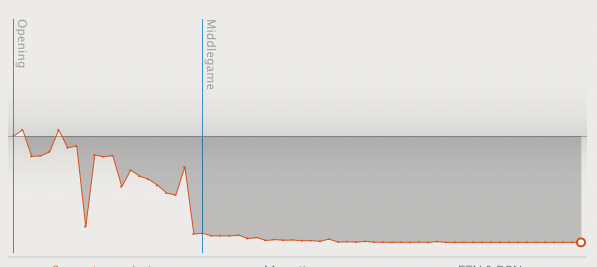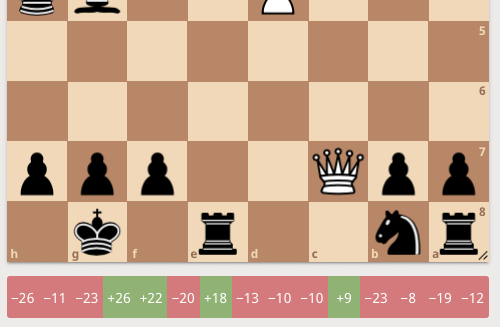Loving lichess.org Over the last week since I wrote part 1 of this diary, I have spent most of my chess time in lichess.org. I have been getting familiar with the features, doing a few puzzles, watching some games, browsing some studies and generally just enjoying it all. Being too timid to play against a … Continue reading My chess-learning diary, part 2
Author: Robert
My chess-learning diary, part 1
Late November, early December 2020 A couple of weeks ago I got the chess bug and composed my first chess post which explains how my little chess bug became a slightly bigger chess bug in the first few days as I worked through the basic checkmate puzzles (like how to force a checkmate with only … Continue reading My chess-learning diary, part 1
Learning to play chess … again
On two or three previous occasions I have tried to get into chess but it has never clicked with me. The most recent, a few years ago, was when we had one of those 'chess for kids' books in the house (I have two daughters who are now aged 11 and 13). I tried to … Continue reading Learning to play chess … again
Setting up a Spark cluster on AWS
On 7th December 2017 I gave a presentation at CodeNode (London UK) in which I showed how to set up a Spark cluster on AWS spot-requested instances. You can find the meeting notes on the Full Stack Quants website -- there is a link to a video recording of the session as well as links … Continue reading Setting up a Spark cluster on AWS
Smalltalk collections for Python coders
One of the great things about Python is the way you can easily juggle items around in collections -- lists, dictionaries, sets -- and the shortcuts you get when you combine them. For example, to get a unique collection of elements in a list: list(set(my_list)) will do it. Similar things happen in Smalltalk but these … Continue reading Smalltalk collections for Python coders
Notes on debugging with gdb
Nice collection of tutorials here. PDF crib sheet here. Nice collection of suggestions in StackOverflow here. Some code for GDB which displays STL containers in a more friendly way, halfway down here. Nice tutorial which gives a bit more depth on tui here.
Setting up QuantLib in Linux
[ This is an article that I started writing a few years back, when I was experimenting with Puppy Linux, then put on hold. Much of it is still useful, so the post merits to go public. ] Having written a walk-through on how to set up a Linux system ready for compiling software (see here), … Continue reading Setting up QuantLib in Linux
The easy route to risk-neutral measure pricing
The principle of pricing in the risk-neutral measure is the foundation of quantitative analysis. I have already written a post which gives an intuitive description of the concept of a risk premium and which discusses some aspects of the risk-neutral approach (see here). In this post I want to look again at risk-neutral pricing. It … Continue reading The easy route to risk-neutral measure pricing
TDD and your solution domain
What does TDD achieve? If you are pair programming, TDD is excellent because it keeps the pair communicating on the same level. If you have an idea then you have to represent it as a test and the other person can follow your idea more easily. Should you always write a test first? I think … Continue reading TDD and your solution domain
What is Functional Programming and what does it do for you?
This is a good example here of a bad explanation of FP: basically saying that FP is intelligent whilst non-FP is dumb. I recently read a couple of blog posts by Kris Jenkins which give his answers to the questions: What is functional programming? Which languages could be said to be functional programming languages? I … Continue reading What is Functional Programming and what does it do for you?

